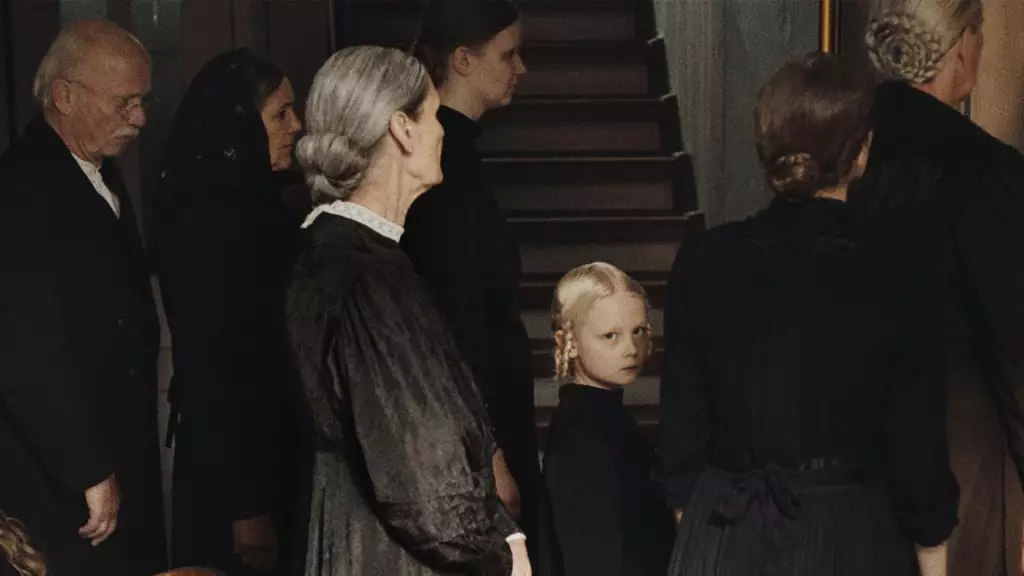The Cannes Film Festival has earned a reputation for its unpredictable nature, often leaving audiences and critics to sift through a myriad of films before identifying true masterpieces. However, in 2023, one film emerges from the shadows with breathtaking immediacy: Mascha Schilinski’s “Sound of Falling.” Early industry whispers and fervent speculation surrounding this relatively obscure filmmaker have transformed into a thunderous applause, marking this flick as a frontrunner for the coveted Palme d’Or. The staggering excellence of this project has caught the film community by surprise, proving once again that cinema has a penchant for unveiling captivating new talents in the most unexpected ways.
A New Voice in Cinema
Mascha Schilinski, a name not widely recognized until now, creates an impact that compels critics to reassess what they consider the boundaries of cinematic storytelling. Her latest film had already garnered significant interest prior to its debut, with production company mK2 demonstrating serious investment by acquiring rights to the film after identifying its potential. Such bold moves imply a level of confidence in Schilinski’s visionary approach that is rapidly capturing the hearts of both audiences and industry professionals alike.
The premise of “Sound of Falling” is audacious: it intertwines the lives of four girls from distinct historical eras while exploring their formative experiences on a German farm. This innovative framework not only pins together their narratives across time but also deepens emotional resonance in ways that seem almost metaphysical. Here, Schilinski emerges as a maestro, blending the intimacy of individual stories with the rich tapestry of collective experiences—a hallmark of genuinely transcendent filmmaking.
Unparalleled Cinematic Brilliance
Critics familiar with the competition in Cannes are already hailing “Sound of Falling” as a cinematic marvel that pushes the limits of traditional film. With Damon Wise of The Observer lauding the film as an “all-timer,” the accolades have reached stratospheric levels, shining a light on how this film might change the landscape of contemporary cinema. The praise doesn’t stop there; Variety confers the title of “astonishingly poised and ambitious,” while The Hollywood Reporter challenges viewers to rethink their very conception of cinema with its description of the film’s groundbreaking narrative structure.
These early reviews present a chorus of admiration that resonates throughout the festival grounds. The buzz surrounding the film has caused a flurry among buyers eager to capitalize on its meteoric rise. The market screening slated for the near future is anticipated to be a crowded affair, attracting high-profile executives typically reserved in their festival appearances. As the frenzy ensues, the question looms: how far will studios reach into the arthouse realm to secure such an innovative work?
A Masterful Collaboration
“Sound of Falling” stands not only as a testament to Mascha Schilinski but also as a collaborative triumph. Co-written with Louise Peter, the film showcases the talents of a robust cast, including Luise Heyer, Lena Urzendowsky, Susanne Wuest, and Lea Drinder. This ensemble achieves a nuanced portrayal of their respective characters, enriching the film’s exploration of time, memory, and identity.
Produced by Studio Zentral and backed by formidable supports such as ZDF and multiple state funding organizations, the film is an impressive synthesis of talent and resources. Every brushstroke of production hints at the meticulous intention that fuels Schilinski’s vision. There is an undeniable synergy in idea and execution that dictates the tone of the piece, leaving audiences with lingering echoes of their own emotional experiences.
The Resounding Impact of “Sound of Falling”
With hints at a competitive landscape for buyers and agents alike, the excitement surrounding “Sound of Falling” has intensified. Emerging evidence indicates this film is not merely one among many but rather a paradigm shift that could redefine how we perceive narrative filmmaking. The film’s previous title, “The Doctor Says I’ll Be Alright, But I’m Feelin’ Blue,” aptly reflects the blend of humor and gravity in the emotional spectrum that Schilinski commands.
As this captivating narrative emerges from the depths of Cannes, it stands poised on the brink of phenomenal recognition. In a world continuously yearning for originality, “Sound of Falling” dares to rise above conventional storytelling with resonance and artistry that marks its creator as a herald of a new cinematic era. For those yet to encounter it, the film represents an opportunity to witness not just the birth of a remarkable storyteller but a collaborative piece of art that paves the way for future explorations in filmmaking.
